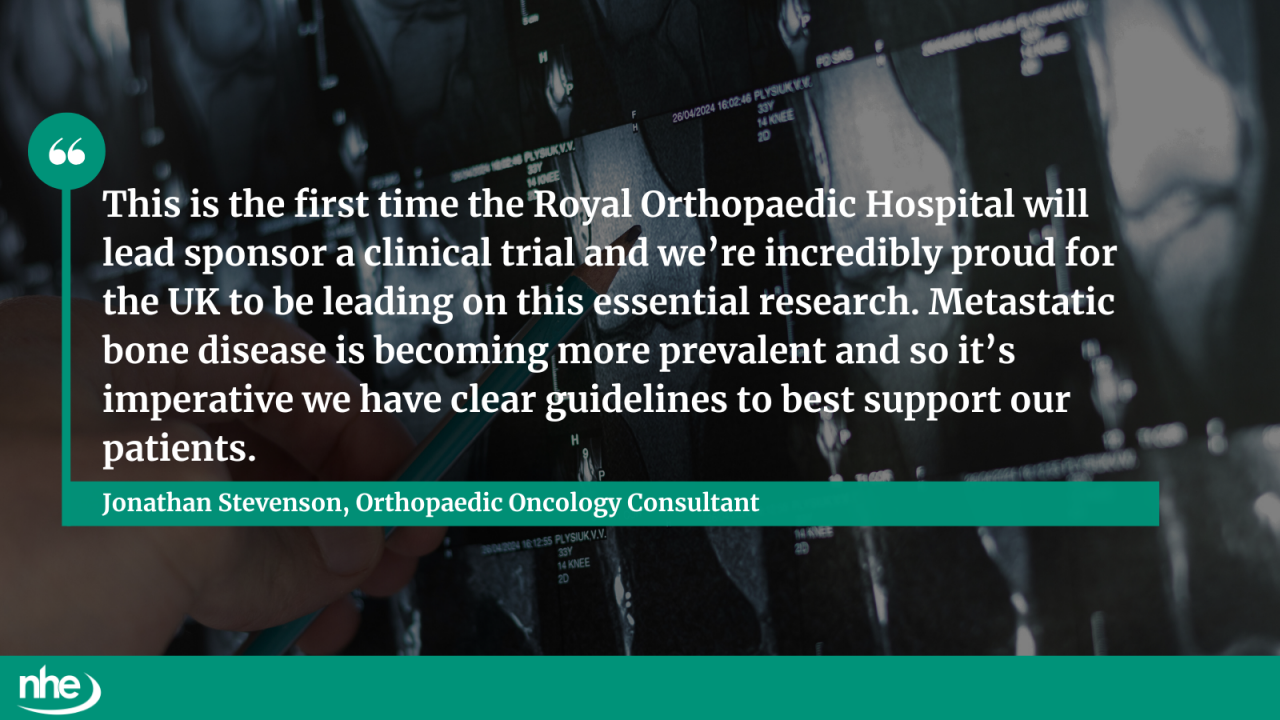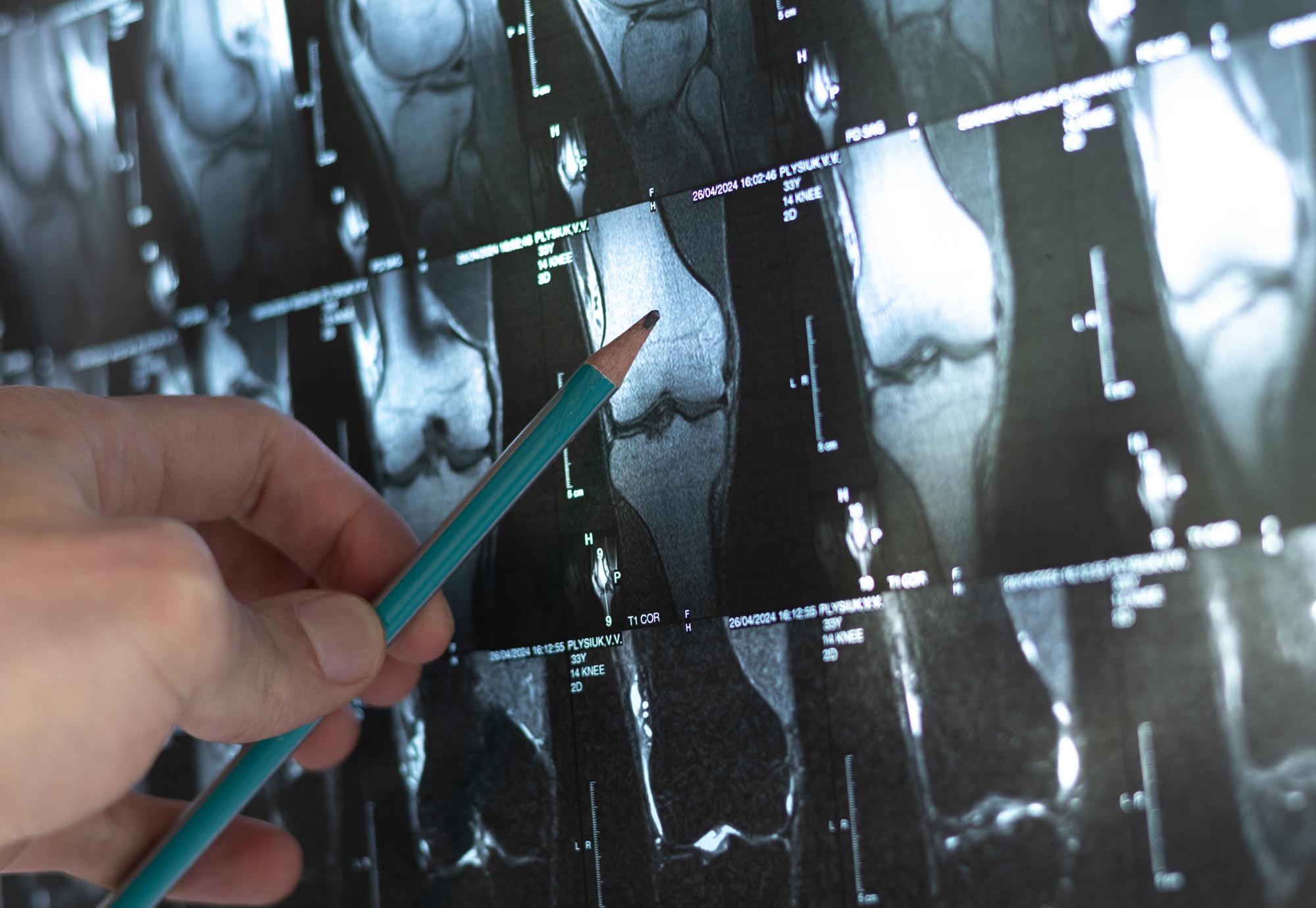Consultants at The Royal Orthopaedic Hospital NHS Foundation Trust are leading a major UK-wide clinical trial to investigate whether radiotherapy after surgery can significantly reduce pain in patients with secondary bone cancer.
The PORTRAIT trial (Post Operative Radiotherapy in Surgically Treated Bone Metastases), with funding from the National Institute for Health and Care Research, will recruit 350 patients across 20 sites in the UK. It is the largest study of its kind focused on improving outcomes for people with pathological fractures caused by metastatic bone disease.
Around 70% of people with advanced breast and prostate cancer develop secondary bone cancer. This can lead to pathological fractures—painful breaks that occur without trauma due to weakened bones. These often require surgery to stabilise or replace the affected bone.
The PORTRAIT trial will assess whether immediate post-operative radiotherapy can reduce pain more effectively than no intervention, potentially transforming care for thousands of patients.
The Royal Orthopaedic Hospital is the lead sponsor of the trial and a global centre of excellence in orthopaedic oncology. The study is led by Mr Jonathan Stevenson, Orthopaedic Oncology Consultant and Chief Investigator, with Professor Richard Welbourn as co-investigator and lead surgeon.
Commenting on the trial, Mr Stevenson said:
“Following surgery for pathological fractures, patients usually receive radiotherapy. Despite its widespread use, there is no high-quality evidence that having radiotherapy after surgery improves pain, quality of life, or reduces the risk of needing another operation. Because radiotherapy has side-effects, as well as requiring additional hospital visits and scans, it is essential to understand if any benefits justify additional harms and cost.
“This is the first time the Royal Orthopaedic Hospital will lead sponsor a clinical trial and we’re incredibly proud for the UK to be leading on this essential research. Metastatic bone disease is becoming more prevalent and so it’s imperative we have clear guidelines to best support our patients.”

The hospital also plays a key role in developing national guidelines for managing metastatic bone disease and continues to pioneer research into bone and soft tissue tumours.
Image credit: iStock



















